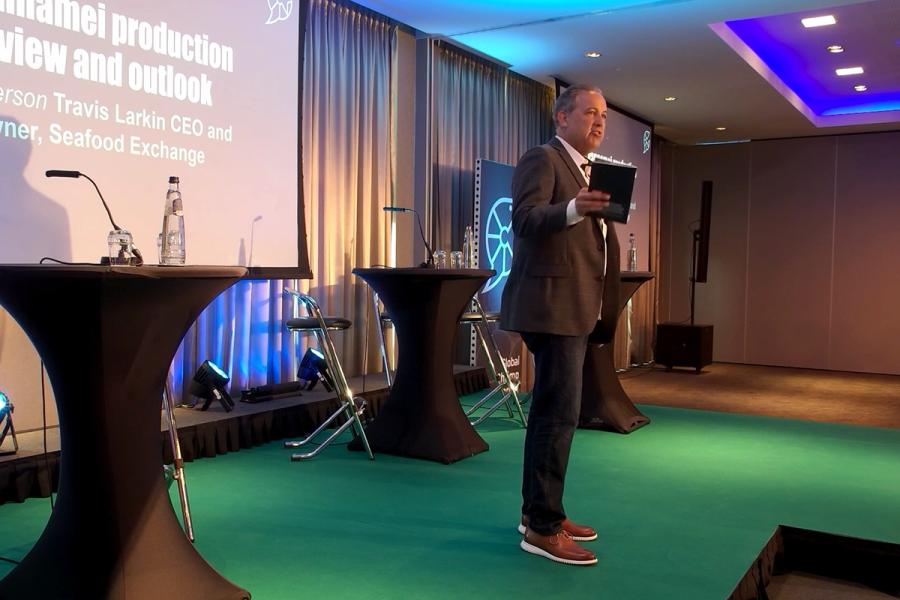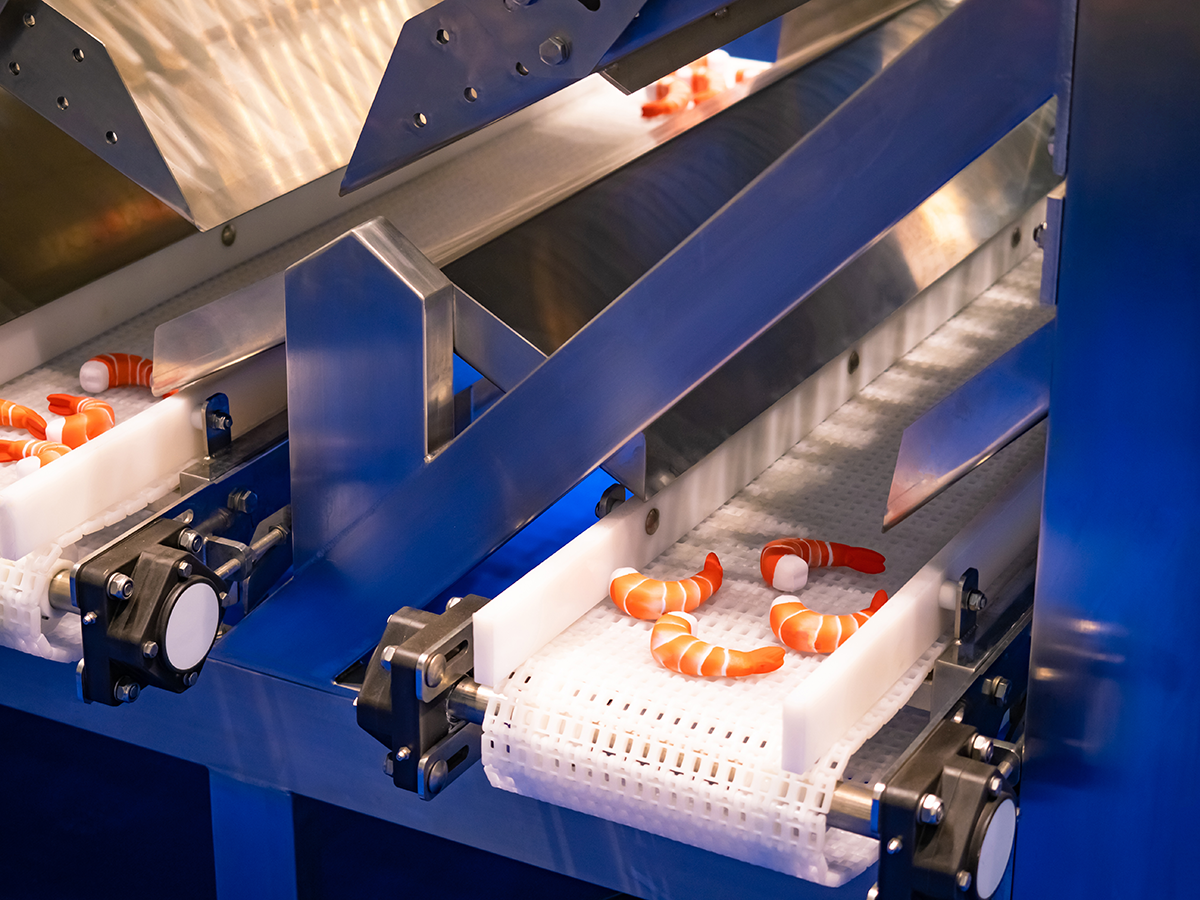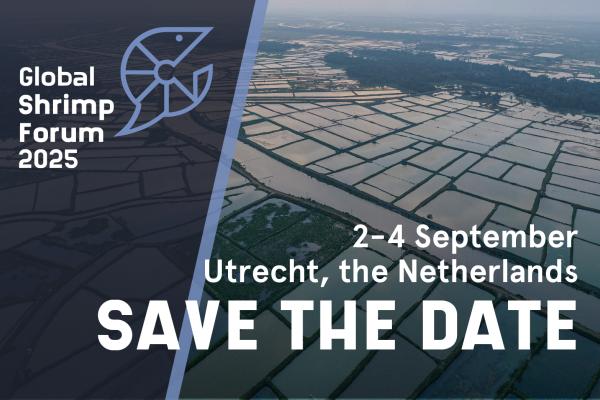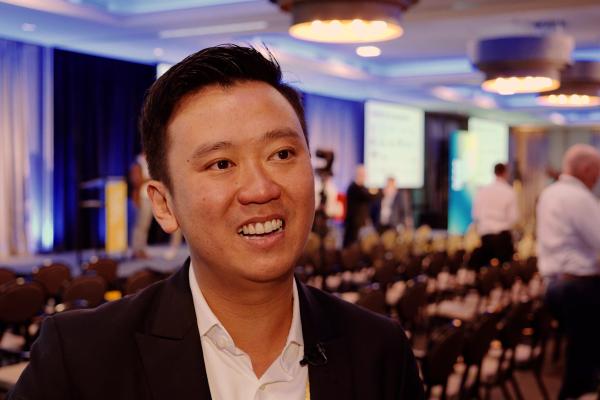
The L. vannamei Production Review and Outlook Seminar takes place on the 7th of September at the Global Shrimp Forum. With just under a month to go until the forum begins, register here to secure your place.
Those attending the seminar can expect to hear from a wide range of fantastic speakers, including Gabriel Luna, the Owner of Glunshrimp, and Ravi Kumar Yellanki, the Managing Director at Vaisakhi Bio-Marine, who will give clear insight and information into the current outlook of key producing areas. For a more detailed overview of the speakers and their presentations, head to the seminar programme on the GSF website.
To get a taste of what else we can expect to hear during the seminar, we spoke to Travis Larkin, the CEO and Owner of Seafood Exchange, who will be chairing the session, and Willem van der Pijl, Co-Founder of the Global Shrimp Forum. Continue reading to find out more.
Outlook
Travis: We have a great line-up of presenters for this seminar, allowing us to give the audience an insight into what’s going on in the key producing parts of the world. We’ll learn what’s happening within production and how things have changed in the last couple of years. We’ll also hear what these producers have planned and how this is likely to affect the way we all manage our companies, in this traditionally very supply-driven industry. In a world of market-driven businesses, shrimp has been an anomaly in the sense that what happens at supply level seems to have an outsized effect in the markets. That said, the markets have also become extremely powerful, so we’ll have some experts on these topics during the seminar panels. They will let us know what’s happening with consumer behaviour and how potential demand strains have changed. What we really want people to take away from the session is a clear understanding of what the outlook will be over the coming months within the industry, enabling firms to better manage their businesses. There are a lot of unknowns, and our objective will be to try and clarify and uncover some of the obscure details within the industry.
Willem: We are at a pivotal moment in terms of shrimp supply and demand dynamics, and we are noticing some very important shifts. For instance, Asia, which has led shrimp production for many years and has achieved rapid growth, is being caught up by countries in Latin America, particularly Ecuador. The structure of the industry in Latin America is also very different from the structure in Asia, and we are now faced with a situation where Asia could lose its place in the international market due to the competitiveness of other producers. Asia will need to respond by trying to solve some of the critical issues within their sector, such as shrimp mortality. I really hope that with the line-up we have created, people will be willing to speak a little bit beyond the obvious to help drive change. We have some really excellent guest speakers and panellists who will be joining us for the seminar. These include Henry DelaLlana, the Senior Director of Procurement at Chicken of the Sea Frozen Products, which is one of the world’s largest buyers of shrimp, and Sjoert Moors, Product Manager of Shrimp for Seafood Connection, one of the largest European buyers.
A Pivotal Moment
Travis: It will also be fantastic to hear from Robins McIntosh, the Senior Vice President of CP Foods, as he will explain what needs to happen within organisations in order for them to remain competitive in the long run. I work primarily with Ecuador, so I’m quite attentive to what’s happening there, and as Willem has already mentioned, for many years, Latin America was primarily an afterthought for the largest buyers. However, the last two years have turned everything upside down, and there have been enormous logistical difficulties in the Far East.
Willem: Asian countries are also driven by the government and have huge production targets. However, their cost price is averaging much higher than other countries. Previously this wasn’t a problem, because the Ecuadorians weren’t ‘value adding’, for instance, they weren’t peeling or cooking their products. But this is something which has changed: all the big players in Ecuador have invested greatly in peeling machines, and peeled products are starting to really compete for that market. In the first panel, the presenters will be able to ask some critical questions to heat up the debate, and in the last panel, the buyers will reflect on the discussion and hopefully give some advice.

A Place for Everyone
Travis: Personally, I think most would argue that it’s in everybody's best interest for all industry players to have success. The short-term view from someone in another part of the world could be that if their competition is struggling, they will sell more product and their prices will rise. However, shrimp has proven to be hyper price-sensitive, so if we lose too many producers or too much volume, the supply and demand factors are likely to put prices in place where some consumer demand will drop. It then becomes a vicious cycle. Until the COVID pandemic started, as an industry, we had enjoyed several years of relative stability, and it seemed like there was room for everyone to succeed. I would argue that there is room for everyone, and that in the long-haul, good, strong, healthy production will allow us to have a steadily growing consumer marketplace where consumption will increase, and everybody really does win. However, we will need to work hard to get there.
Willem: Dependency on one big supplier is also a huge risk for everyone in the market. But on the other hand, dependency on an exporter is also a huge risk. I think that’s another thing which will be discussed, especially by India, who are focusing on developing their domestic market — because why would you depend on the export markets if you have 1.3 billion people in your own country? I agree that there is a place for everyone in the market, but we are at this pivotal moment. If industry sectors do not innovate or strategize and just continue business as usual, they risk being left behind.
Register now
The L. vannamei Production Review and Outlook seminar will take place on the first day of the Global Shrimp Forum, and will involve five presentations and two panel discussions. If you would like to find out more information about the session, you can read the detailed seminar overview by heading to the programme section of the GSF website, or click here to register your place at the forum.


